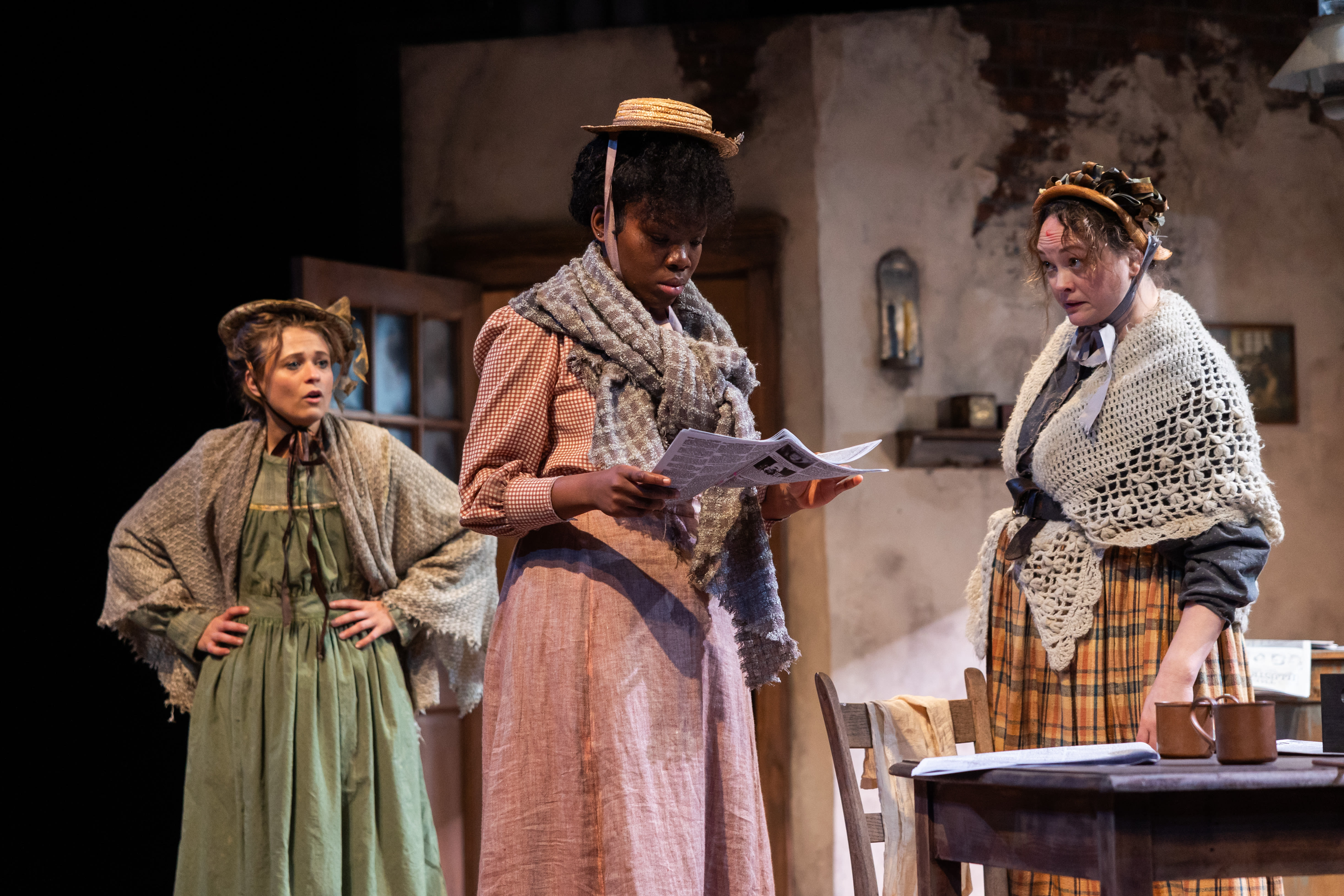TUTS's George Strait-Inspired Show Is No Fool-Hearted Memory

The Pure Country production's set rendering.
When future THEATRE UNDER THE STARS Artistic Director Dan Knechtges interviewed with the company, he didn’t shy away from sharing his big dreams. He told the board he planned to return the Bayou City organization to its roots of developing new, Broadway-quality musicals. “‘That is the future,’” Knechtges recalls saying during that interview in fall 2016. “‘We can’t keep doing dead-writer shows and expect to engage our community.’”
The board, eager to bring the company another win in the vein of Disney’s Beauty and the Beast and Jekyll & Hyde—two major musicals TUTS had a hand in producing—took the leap with him. Three years after Knechtges stepped into the leadership role, the curtain was about to rise on Pure Country, the company’s first major new main-stage musical in 18 years—if only a pandemic hadn’t gotten in the way.
“The fabric of TUTS is woven into this show,” the artistic director sighs, “so the delay in that catharsis is hard to stomach. It’s gut-wrenching.”
The coronavirus is just the latest obstacle in Pure Country’s rambling road to the stage. It all began with North Texas native Rex McGee, the screenwriter of the 1992 musical western of that name, which featured George Strait as a disillusioned country star who leaves success behind to rediscover the tune of his soul. After parts of his script got left on the cutting room floor, McGee began to wonder if there weren’t a better medium to tell his story. For more than 15 years he worked on a stage version of Pure Country, even scoring a Broadway-bound workshop around 2008—the same sort of opportunity that helped catapult Hamilton into a national cultural phenomenon—though the show fizzled long before getting anywhere near the stage.
Still, like a tumbleweed rolling down the dusty road, McGee kept going, and, after a small production outside of Dallas in 2017, he reached out to TUTS, which had invested in the earlier workshop. The Houston company had been out of the big musical-making game since its disastrous 2002 production of the resoundingly panned Whatever Happened to Baby Jane, but, with Knechtges now at the creative helm alongside new Executive Director Hillary Hart, it had been looking to take on another fledgling show.
“Texans are competitive,” Knechtges says with a laugh. “They’re like, ‘Well, if the rest of the world is getting big new musicals, why shouldn’t we? And why shouldn’t ours be the best?’” Pure Country, with its Texas ties to McGee and, of course, to Strait—a RodeoHouston hero in his own right—had H-Town written all over it.
For almost two years TUTS’s artistic team worked to give Pure Country a helluva makeover—though not quite as drastic as the ponytail-shearing one Strait gives himself in the original movie—honing the material into a cohesive show that kept the heart of the film’s story while updating the feel of the piece for a modern audience. As they helped McGee flesh out the characters and more fully adapt the script for the theater (a montage of your protagonist traveling from the city to a small town works great on film—not so much onstage), they also worked with Grammy-winning songwriters Steve Dorff and John Bettis to turn the original radio-centric songs they’d penned for the film production into show-stopping musical numbers, says Megan Larche Dominick, associate artistic director/director of new works, who has worked on the script since her very first week at TUTS.
By the beginning of 2019 they knew it was on track to be ready for the final test: a premiere before a Bayou City audience. Over the following year choreography began to coalesce, costume sketches took shape, and an entire set was constructed. “Something we rarely get to do at TUTS is build a set from scratch,” Larche Dominick bemoans, the twinge of disappointment still echoing over the phone months later. “We had just finished the damn thing.”
Concerns about Covid-19 started brewing in late February—TUTS was flying five principal cast members in for the run, but would it be safe to have them travel? Hart, the executive director, was in constant communication with fellow arts leaders around the country and the world, assessing the situation and eyeballing other companies’ plans. “Everything was happening so fast,” she says. “Every day there was new information; every day there were new restrictions.”
Still, the TUTS creative team waited, hoping things would resolve before the looming April premiere. On March 16 TUTS flew the principal cast down, planning to at least hold a workshop if the production was canceled, says Hart. Twenty-four hours later, everyone they’d brought in was back at the airport, heading home.
With almost 30 years of professional experience, a score of Broadway credits, and a Tony nomination to his name, Knechtges has seen plenty of productions collapse just months before beginning rehearsals, but being within a hair’s-breadth of getting Pure Country up on its feet made the decision hurt all the more. “It broke my heart,” he says. “Never have I ever encountered a show being canceled like this. Never.”
Just like that, roughly half of the $1.5 million the company had budgeted for the production was gone. TUTS lost about $5.97 million in revenue overall with the sudden end to its 2019-20 season, and is projected to lose millions more now that the current season has been delayed until May 2021, a pair of hits that will affect the company for at least two to three years, says Hart. It’s forced changes to the company’s immediate programming plans, but organizers never questioned their painful choice once the pandemic hit Houston. “It’s about human life,” she says. “It’s about safety.”
And Pure Country’s Houston story isn’t over yet. The TUTS artistic team hopes to stage the production during the 2021–22 season. They’ve even kept that set and plan to reuse it when the time finally comes. The promise of a second chance at the production has sustained the TUTS team through all the shutdowns and show cancellations. And the unexpected delay, they add, will allow them to refine the show that much more.
“It’s not like I have to say goodbye to it and never come back,” Larche Dominick says. “I just have to say, ‘We’re paused.’”




